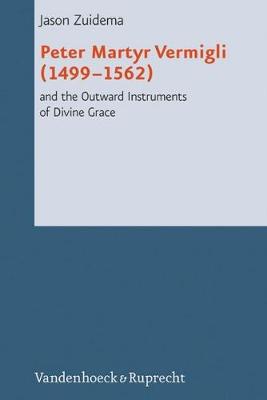The Reformed exegete and theologian Peter Martyr Vermigli (14991562) was an unoriginal, but consistent thinker. Theological insights were not packaged separately from each other, but consistently linked together. In all his thought he sought to steer the middle course between theological extremes in taking what was good and rejecting what was bad from each. Typical of this tendency to steer the middle course are his insights into the outward instruments of divine grace. According to Vermigli such instruments the human nature of Christ, the audible words of Scripture and the visible words of the Sacramentsshould not be over-carnalized, nor over-spiritualized. Although God could work immediately (i.e. without instruments), he has chosen to work through these instruments for salvation. Hence, the inward spiritual power and the outward instrument must not be divorced from each other. The Spirit of God does not normally work without the outward instrument, nor can the outward instrument effect grace without the Spirits power. Modern scholarship has done much to define the sources of Vermiglis thought, but more needs to be said. The more Vermigli is studied, the more it is necessary to qualify characterizations of him. He is not a thinker who is easily pigeon-holed into a certain theological school or movement. As a well-educated biblical and humanistic scholar, Vermigli took independent and well-reasoned positions on the whole variety of theological questions current in his day. As such, this study attempts to view the inter-connected nature of Vermiglis thought so as to gain a better view of the whole of his thought.
- ISBN10 3525569165
- ISBN13 9783525569160
- Publish Date 20 August 2008
- Publish Status Active
- Publish Country DE
- Imprint Vandenhoeck & Ruprecht GmbH & Co KG
- Format Hardcover
- Pages 196
- Language English
